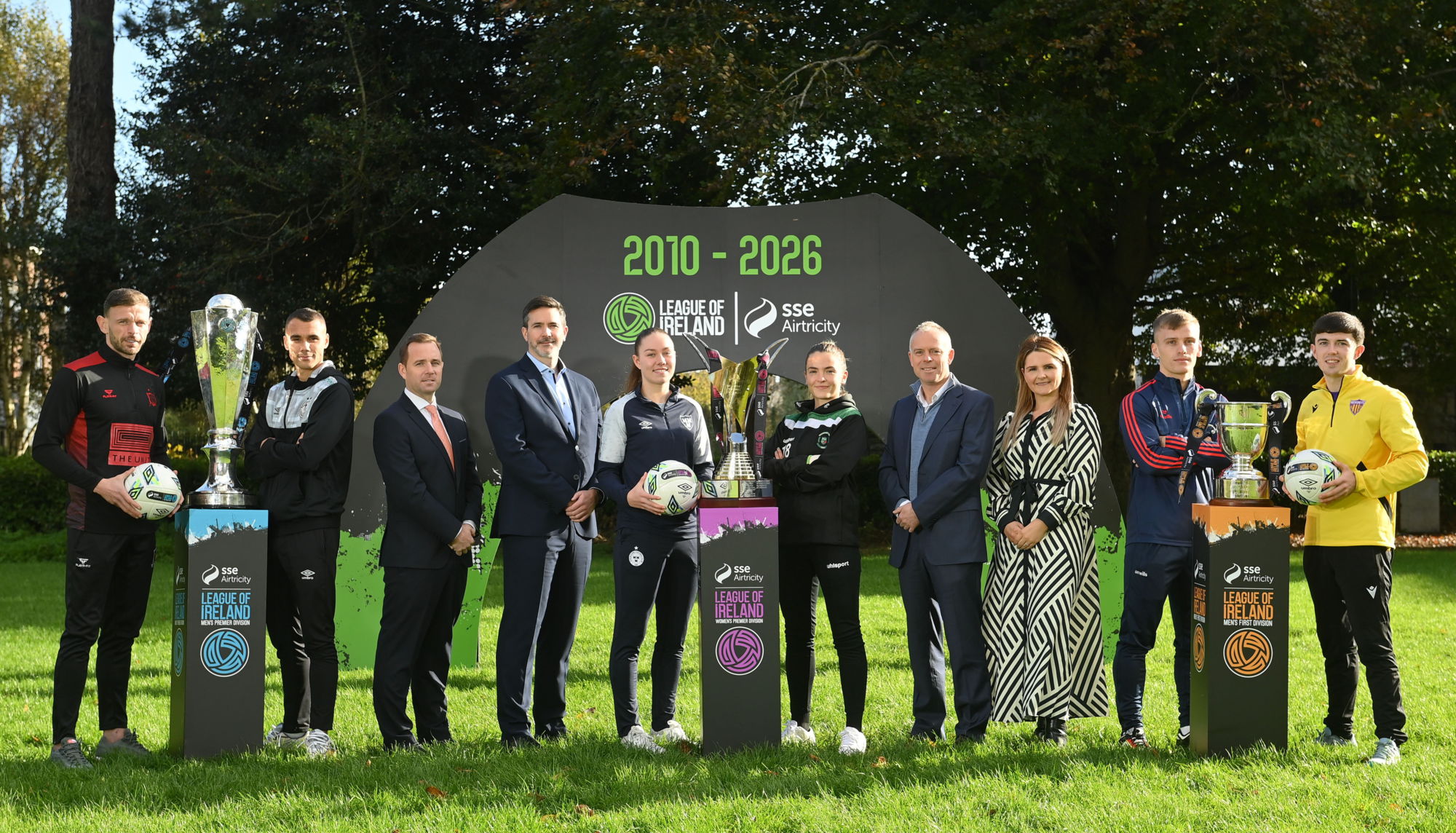In March 2023, Bohemian FC launched its FSR/Community Strategy 2023-2027 with one of its main focuses being climate justice and sustainability.
In March 2023, Bohemian FC launched its FSR/Community Strategy 2023-2027 with one of its main focuses being climate justice and sustainability. As the impact of climate change become more apparent worldwide, Bohemians Head of Climate Justice and Sustainability, Sean McCabe is leading his Club’s effort to make their contribution to mitigate this impact.
Acknowledging that climate action is urgent, Seán has outlined how a local professional football club can use its profile and social capital to do its bit for the planet. “We need to find ways to ensure the wider community is included in the climate transition. People trust football clubs and feel a sense of belonging. If we respect this trust, we can use it to build collective solutions that help to tackle inequality as well as the climate crisis”, Seán explained.
Bohs is genuinely mindful of the cost-of-living crisis and the impact on their local community. Consequently, Bohs in their FSR strategy, has made a “genuine commitment to uplifting people” and improving their lives. That means improving living standards by providing better access to jobs and creating opportunities to access climate solutions that reduce household bills. Seán explains that the economic challenges must inform local climate strategies, “we don’t want to preach to our members about taking shorter showers or turning down their heating, that would be extremely tone-deaf at a time when so many are struggling. Instead, we want to build local climate solutions that they are a part of and that respond to their needs and priorities.”
The mechanism to enable these outcomes is ‘community wealth-building’, another focus area of the club’s FSR strategy. In a nutshell, community wealth-building challenges traditional economic development practices by funnelling wealth into the local economy and placing control in the hands of local people via a cooperative structure to empower them to generate the future they envision for themselves.
To address these aims, Bohemian FC has received the Community Climate Action Fund from the Department of the Environment, Climate and Communications via Pobal to develop a project called “The Spark”. Based in Dublin 7, The Spark will serve as the capacity-building strand of the Bohemian Climate Cooperative - a place-based and community-led initiative to enable ambitious climate action and local wealth building.
The Spark is grounded in the principles of inclusion, participation and equity and has three primary aims:
- To inspire and empower the community through capacity development so that the membership of the Bohemian Climate Cooperative can grow and become sufficiently diverse as to be sustainable.
- To co-create learning programmes, with participants, through iterations of pilot projects in order to ensure that initiatives meet the needs of the community and are accessible to all.
- To share learnings through the development of a toolkit that will detail both the Bohemian Climate Cooperative initiatives and the iterative training development, with the aim of enabling replication in other communities.
To achieve these three interconnected aims, the Spark aims to prototype four initiatives to serve as vehicles for capacity-building. These initiatives will be designed to reach as broad a cohort of the community as possible so as to ensure a shared sense of ownership of, and belonging to, community climate action. The Spark will:
- Engage teenagers and young adults in a Youth Training programme to provide practical job skills and training to help young people join the green economy including covering retrofitting, bicycle maintenance and renewable energy technology.
- Support the development of soft and technical cooperative skills while making cycling more accessible and more affordable through creating and managing a Bicycle Library and a Library of Things.
- Develop an after-schools programme on climate action in the community to educate children about community-led climate action in a sensitive manner and increase awareness of, and appreciation for, the community climate cooperative.
- Create an inter-generational dialogue on the circular economy and prototype a community repair initiative to better understand household issues with the maintenance and repair of home appliances and electronics.
The Spark will enable the continuation of shared community learning already underway through the Bohemian Way (a Creative Climate Action project). The project will also benefit from, and build on, a robust evidence base and an emerging local culture of participative climate action provided by the People’s Transition pilot project, conducted by TASC, and the work of the Sustainable Energy Communities in Phibsborough, Cabra and Stoneybatter.
Furthermore, the project will utilise the expertise from strong local institutions such as the Grangegorman Development Agency and Technological University Dublin and combine this with the unique reach of football in the community and the active engagement of citizens and volunteers through local community groups, such as Phibsborough Tidy Towns, Connecting Cabra, Cosybatter, local businesses including Rothar and the prisoners in the Progression Unit of Mountjoy Prison.
The output of The Spark will be a modular capacity building toolkit that will include lessons from the development of the four initiatives of the Spark as well as the broader learnings around the development of cooperative culture and the process of iterative co-creation of training modules. The development of this toolkit will benefit from academic rigour afforded by TU Dublin and will be designed to be accessible, understandable and implementable.
So, ambitious and exciting times at Dalymount and who knows, the Spark may provide an excellent template for other League of Ireland clubs to follow to provide new opportunities for their local communities whilst doing their bit for the planet!
Relevant Sustainable Development Goals
Relevant UEFA Social and Environmental Sustainability policy areas



